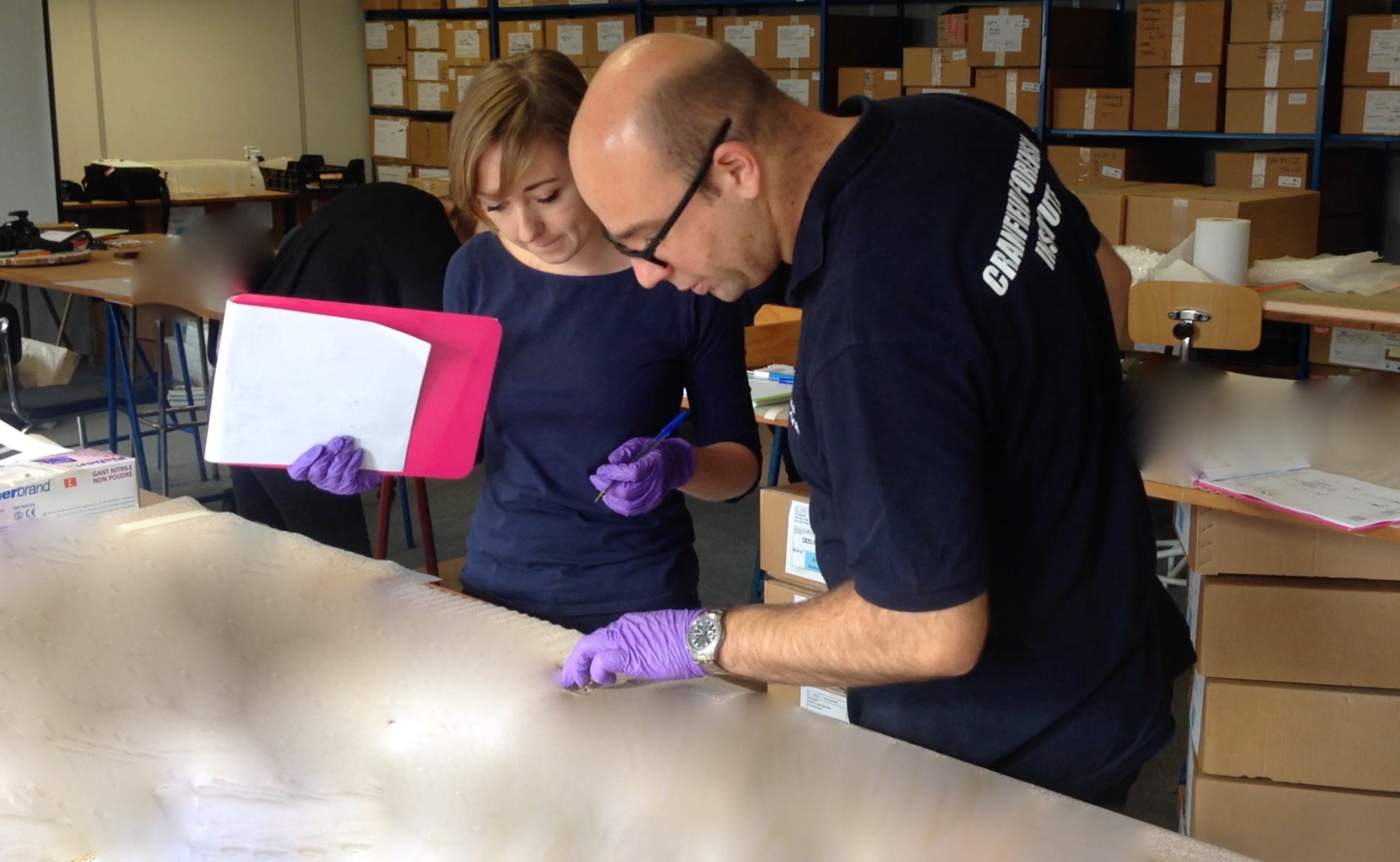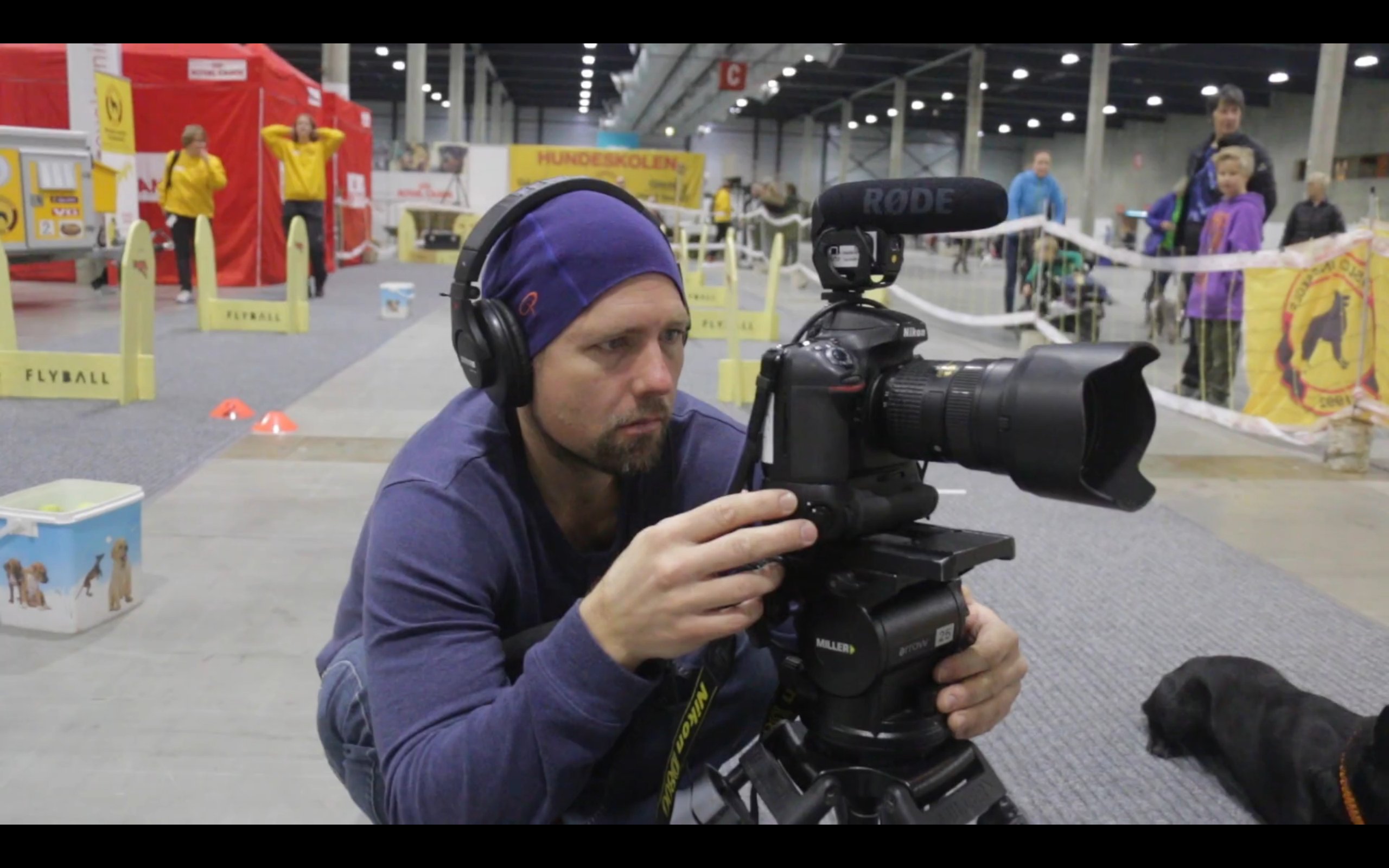Technology: Helping archaeologists reunite families with lost war heroes

Roland Wessling has an incredible job – something truly fascinating, hugely rewarding, and something that changes people’s lives too.
But when he started 10 years ago, achievement was hard to come by. Fast-forward a decade, and now it’s routinely successful, something he says is down to the evolution of technology, and services like Dropbox.
This is Roland’s story.
“My job is pretty unusual, I won’t lie! In a nutshell, I’m part of a team of archaeologists based at Cranfield University, and we excavate sites across Europe – carrying out post mortem investigations on the remains of conflict causalities.”
Roland says, “A lot of the families we meet have had no idea their great uncles or great grandfathers died in battle. When the remains are handed over to the family it can be very emotional – there’s a lot of hugging! Often it gives closure to families who have always wondered what happened. It gives dignity to the dead by bringing them home, telling the tale of their life and giving them a headstone.”
Often Roland’s working with tiny fragments of remains dating back to the First or Second World Wars. And now, thanks to developments in technology, the team are identifying somewhere around 8 in 10 individuals by name, and tracing their living families, in order to tell and share their stories.
It’s a tough job. After the Second World War, teams of Army-led excavators were sent out to try do to the same, but whilst they did the best they could, it wasn’t done well. There were lots of gaps, which has led to thousands of sites out there which still need excavating.
The projects themselves are done in two phases. Firstly, the team needs to identify the site. They often have nothing more than a report of a battle, and the assistance of some satellite imagery of the land. Once they’re there, it’s about finding the remains themselves. “It’s sometimes like a needle in a haystack”, Roland explains. “There may be as little as one tooth in a crater and you need to identify people from that. Teeth are perfect for DNA analysis but if we don’t have original DNA, or that of surviving facility members to compare to, we can resort to using old photographs – matching teeth to a person’s smile, for instance – or if someone has a unique feature like a limp, or a pin in their leg following an incident. Then, following identification, the remains are handed over to the family members.”
That means technology plays a vital part, not only in forensics, but in research and communication on-site. Teams need access to files whilst working remotely in order to share findings and securely store personal details. Some discoveries end up in International Courts so it’s imperative data is secure and safe. The archaeologists collaborate with partners in both the US and the Pacific regions so they need the geographic flexibility to bring people together to collaborate on files.
Read our education ebook to find out how to fuel innovation
Download nowDespite the success of past excavation projects, Roland has big plans for the future of his team. “I want to build up a team of part-timers – on call professionals who have all had Masters’ level training in this sort of work. I’m planning both training courses and proficiency testing for all team members and in order to train them well I need secure access to certain information. I’m looking to create a virtual learning environment in the cloud in which I can teach, share and demonstrate archaeological and anthropological work in action.”
When we met Roland, he was quick to explain the role Dropbox plays in managing these incredible projects.
He says, “Record keeping and archiving is one of the most important things on site. As soon as you take a brush stroke, you are wiping out a piece of history, so recording things in real time is essential. We take about half a terabyte’s worth of photos and other electronic data in one week when on operation. Documentation is everything and that’s why Dropbox Business works so well for us.”
His work also takes him into some moral mazes which require real thought. “It’s why security is so important for us. Generally, we have a policy where we hand over all the information to the families, however horrible it is – to ensure it is used sensitively and all the materials remain private.”
For Roland, technology and particularly the cloud has helped improve excavation success and allowed him to share resources and knowledge with University students, and academics, all over the world.
But most importantly it’s about reuniting families and giving lost war heroes the respect they deserve: “Seeing the families of those killed and seeing their joy at hearing their family history – that’s what it’s all about. After seeing lots of awful things at the excavation sites, it really restores your trust in humanity.”
Drop Everything will be following Roland every step of the way, as he sets up his virtual learning environment for students. To find out more about the projects and how you can get involved click here.




